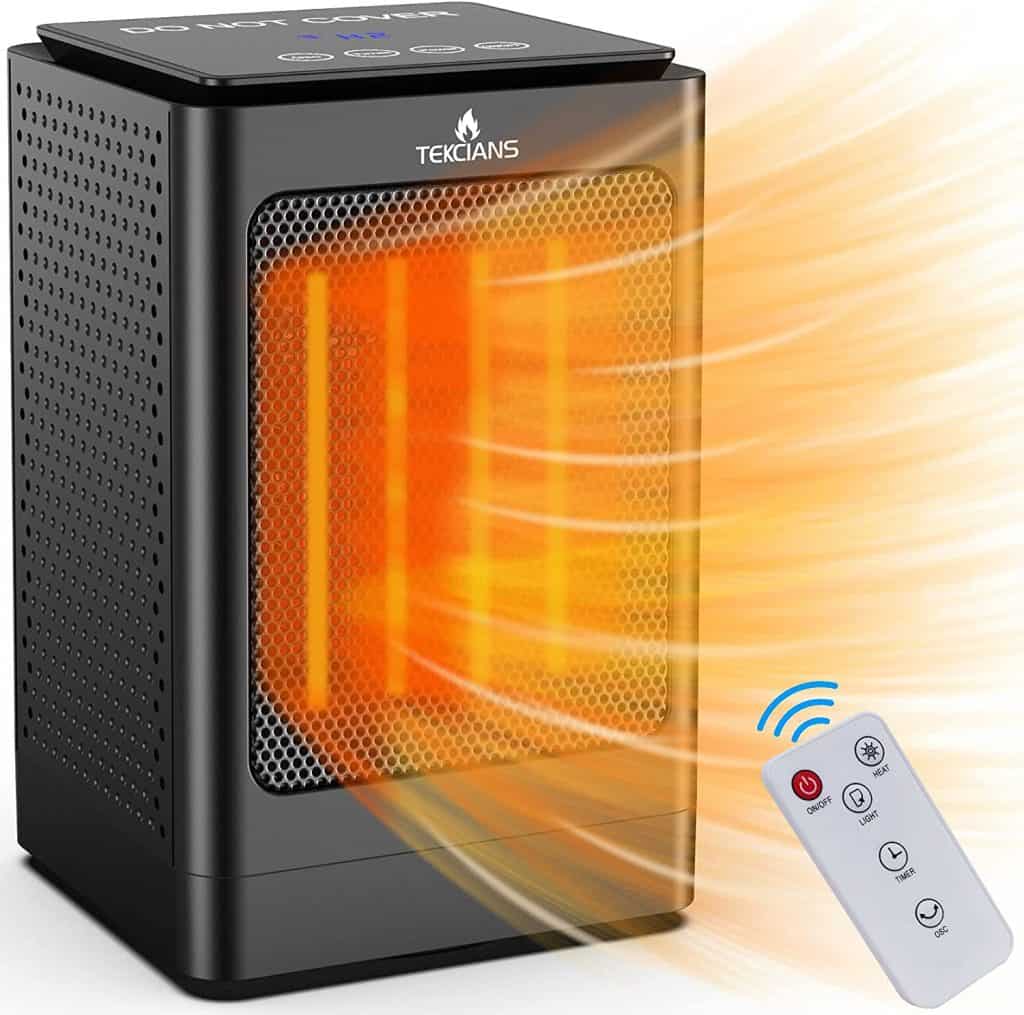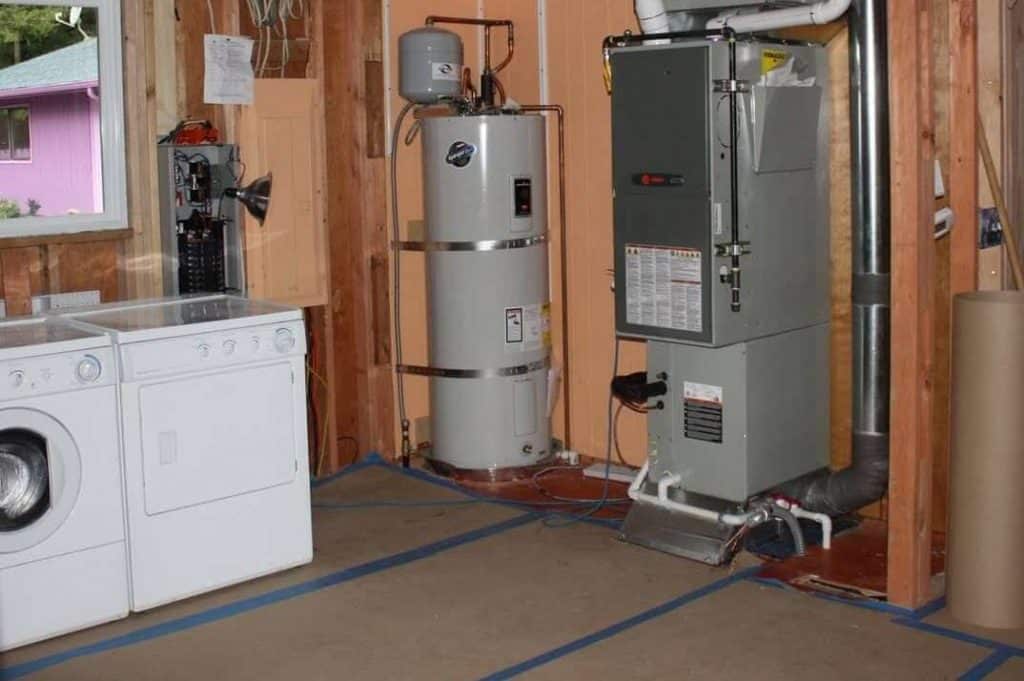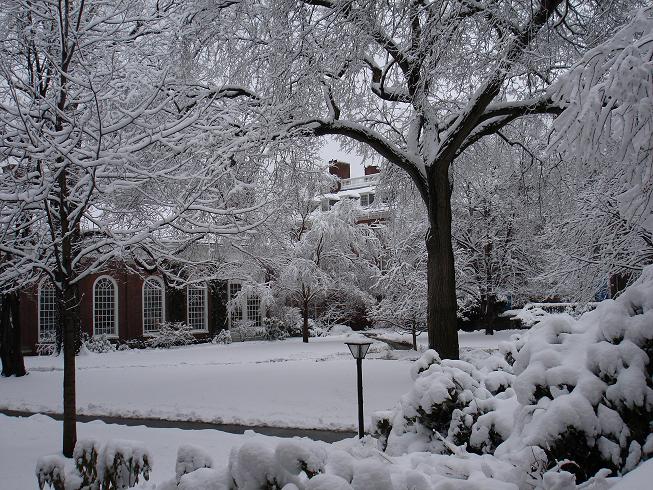When you have to clear off the ice from your pathway in winter daily, freestyling without a heating system in your home isn’t an option. The dilemma lies in figuring out which heating system is more cost-saving. Do you add a relatively inexpensive space heater in every room? Or do you go for the pricey central heat which can warm up the entire household?
Is it cheaper to run space heaters or central heat in the long run?
The Major Difference Between Space Heaters and Central Heat
Space heaters and central heat are entirely different heating systems.
Space heaters are usually portable units. The largest available barely touches 24 lb in size. These are single-room heaters.
The BTU production of space heaters only covers a minor area. The heat definitely doesn’t travel to the rest of the house. Depending on the unit type, space heaters produce heat through convection or radiation.

Radiation run space heaters only heat up the area close to the unit too. While convection space heaters warm up the air, thus distributing heat over a larger area.
In fact, for large rooms, you might have to get more than one space heater to keep the entire room warm.
You want to keep the entire house warm with space heaters? You will have to get one for every single room. Should you want to keep only the room you are in warm, you can compromise by carrying a single space heater from one room to another and plugging it in each time.
The central heat system isn’t portable or for a single room.
These are generally large units you won’t be able to move without at least two people doing the lifting. More importantly, a central heat system is for an entire house or building.

The heat travels from the unit to inside the walls and under the flooring of the building via ductwork. The goal is to keep the entire structure warm rather than distribute the heat inside the house. The power source might be electricity or gas.
Considering this major difference in how both systems work, you can imagine the overall cost for running both can accumulate in all kinds of ways.
Space Heaters vs Central Heat: Which One Costs More?
Cost of a Single Unit
On average, a good quality space heater costs about $40. The cheapest ones can go as low as $14 and the priciest ones can go about $100 to $250 range. This is for space heaters with a heat output of 1500 watts. You may or may not get a thermostat as part of the package.
The cost of the cheapest central heat system is at least 4 times the price of a space heater. You will hardly find one that costs less than $800. The upper price range can easily reach $3000 to $5000. You’ve to add a professional installation charge to this. The cost is mostly determined by the total BTU and the heat-producing method.
So, when it comes to pure unit pricing, central heat is beyond expensive.
However, depending on the size of the room and number of rooms, it’s possible you might have to buy at least 4 space heaters.
Unless you are satisfied with a single space heater you can set up in any room as needed, the total cost can come close to that of a central heating system, though still cheaper.
Powering Cost
A regular-sized 1500 watts space heater cost about 20 cents per hour. If you run the heater almost for 24 hours every day, the cost would amount to $4.8. In a month, if we count 30 days, $144 electricity bill.
You can find eco-heaters in the market which require fewer watts and thus, have less impact on your electricity bill. Their reliability is still to be proven though and can be a waste of money altogether if the heat production isn’t effective.
Now, of course, you won’t keep the space heater running the entire day. In fact, it’s advised you don’t keep these kinds of heating systems running while you are sleeping. Even so, you can look forward to a large electricity bill in the winter months, depending on how often you keep it running.
You get more than one space heater which you have to keep on running, well, you can add up the numbers.
Of course, your power provider and your locality also play a huge role in the power electrical cost.
If the central heating system is something like a gas furnace, the yearly bill would be around $700. A central heating system with the primary heating more being electricity would be around $900.
If we compare a single space heater unit to a central heating system where both are run on electricity, the power bill is either same or bigger by a small margin with central heat. However, considering a house would need more than one space heater, the ultimate energy saving occurs with a central heating system.
If you buy a fuel-run central heating system, then the yearly bill is truly low compared to a space heater. Even when the heat produced on a space heater is via radiation, it still has to be plugged into an electric outlet, thus charging a good amount daily. Radiation-based space heaters are not appropriate for an entire room anyway.
The central heating system does not run the entire time either. It’s dependent on the weather and it self regulates, thus requiring more power at certain times and none other times.
Even if you run low-wattage space heaters, the overall energy cost racks up way higher for it than a gas furnace central heater.
Maintenance Cost
Legally, landlords have the duty to service a central heating system every twelve months. For your own house, while there is no law forcing you to do maintenance checks, it is advised you do so yearly.
If your heating system also happens to be your cooling system like the heat pump, maintenance should be done twice every year. The system has to be prepared for winter and summer.
Servicing your boiler might cost you $100 on average. Depending on the central heating system, the fee range is usually $100 to $200.
Additionally, you might have to pay for the filters every 90 days or so in the case of HVAC systems. The climate and the location of your house mostly determine how often the filters have to be replaced or maintained.
Space heaters don’t need yearly maintenance. At least one that doesn’t involve professionals to check on the machine. You dust the heater once in a while and you are good to go.
It is the filters on space heaters you have to spend extra maintenance money on. Modern models all come with removable filters. Clean the filters and you can attach them back again.
However, for extra caution, some people replace their air and furnace filters every 90 days.
Cost Based on the Lifespan
Space heaters last easily between 16 to 20 years with minimum maintenance. This means you do not have to buy a new space heater for at least another 16 years since you purchased your first round of units.
The central heating system also has pretty much the same lifespan, in fact, bigger. Depending on the system, some can last 25 years with ease. The regular use of it and the power source plays some part in the lifespan.
However, the lifespan of a heating pump is about 20 to 25 years. So, once you have the heating system installed, you do not have to worry about replacing it for a quarter of your lifetime.
Other Considerations
Whether it is cheaper to run space heaters or central heat doesn’t only depend on the unit and the costs revolving around it.
You have to consider other factors such as:
- The total space area of your house
- The number of rooms you have
- Whether your walls are properly insulated
- If you have any leaks
- If there are corners of your house the sun simply doesn’t grace
- If your doors and windows are made with energy efficiency in mind
However, if we consider all these factors accounted for, the central heating system stands out as the cheaper choice.
You should buy space heaters if you already have a central heating system running in your home and there are particular rooms, such as the basement, where the central heat isn’t traveling sufficiently.
To save energy even further, you might want to dial down the thermostat to a comfortable level.
Objectively, radiant heaters would be the most efficient option. They are also portable fire hazards, so people tend to move away from that one. It doesn’t cover much of the room either.
So, an electric space heater is if central heating is already present in the home.
Otherwise, if it is a choice between a space heater and a central heating system overall, central heating is the money-saving option. Of course, it has to be a fuel run one for you to get the full blast of energy saving.
Final Thoughts
If you need heat for your entire house, the central heating will also keep the walls warm, thus keeping the entire house in good condition. However, if you move around a lot and live in a small space, you could probably be content with a single space heater.





Comments are closed.